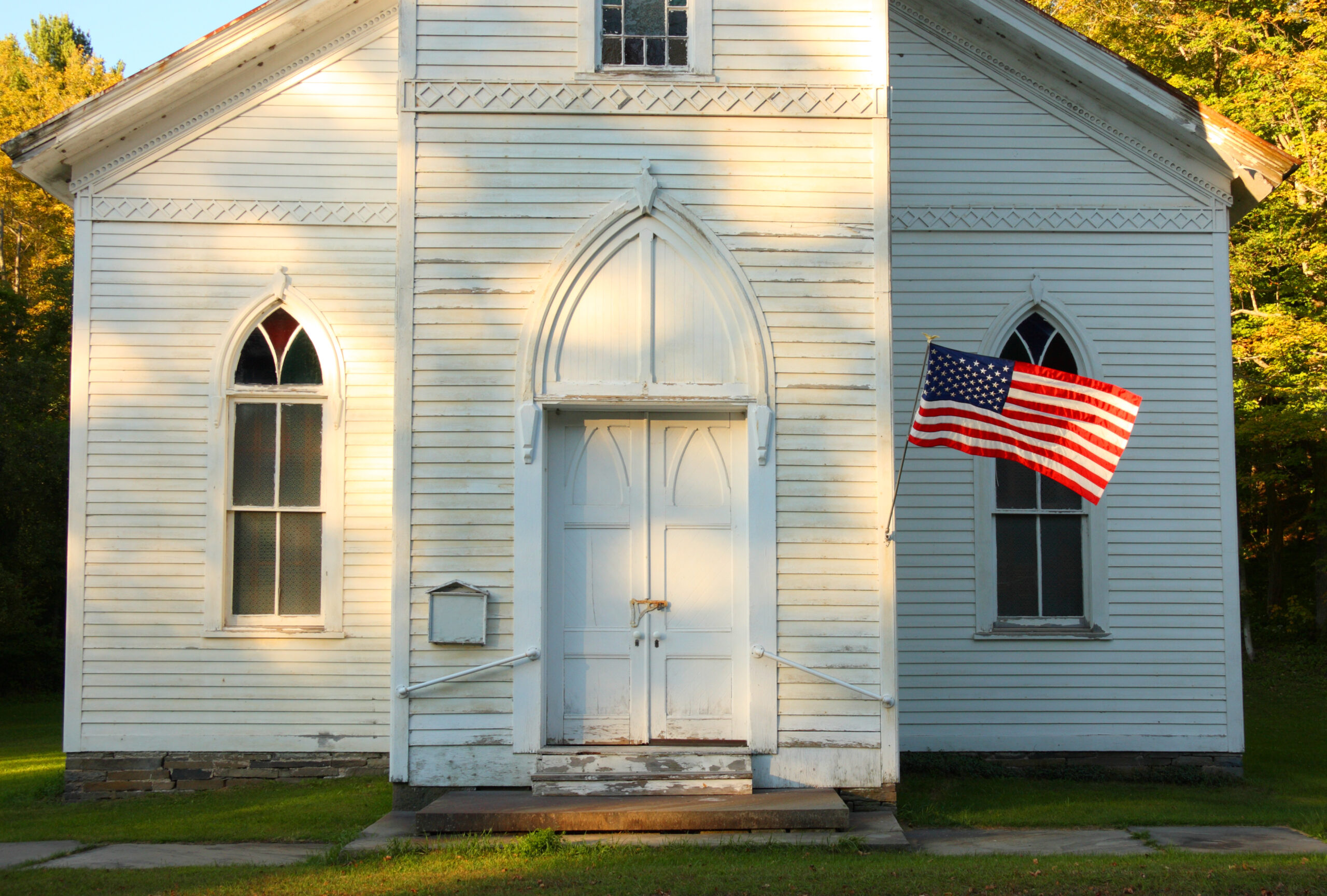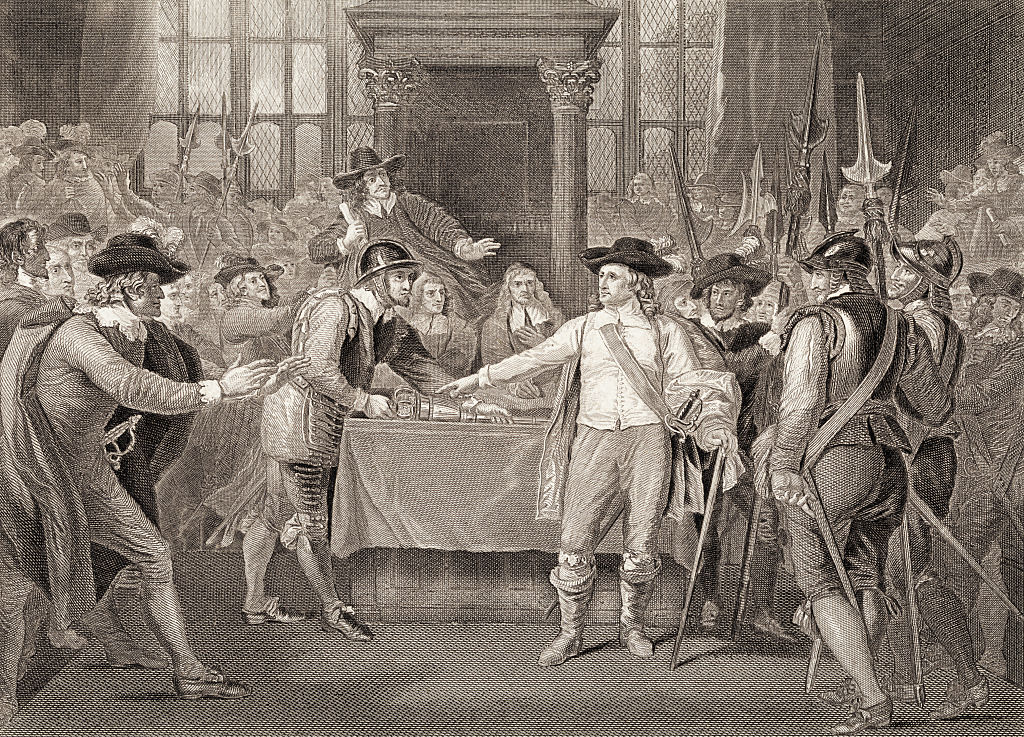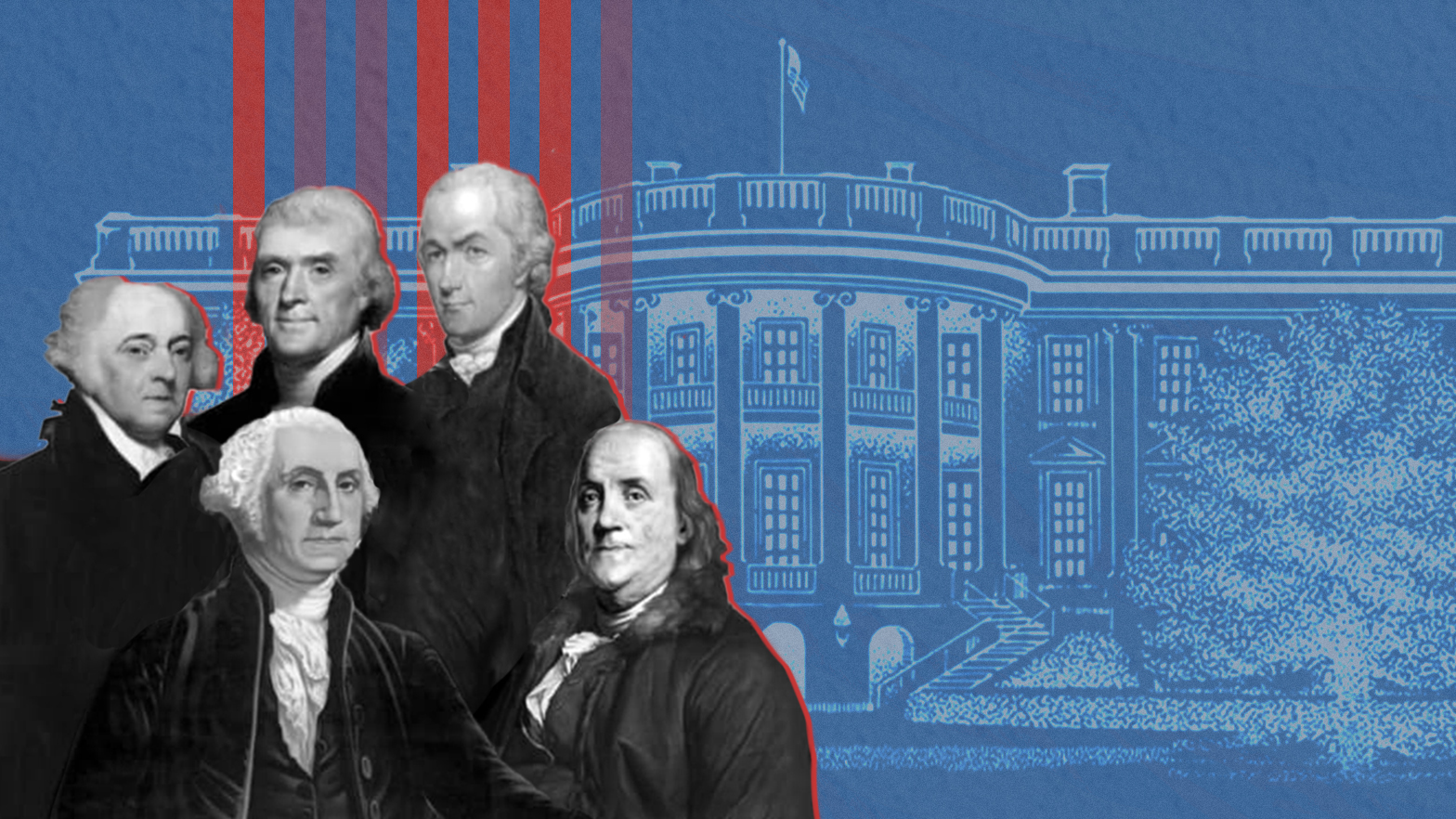Conservatives’ acceptance of viewpoint neutrality will only hasten America’s demise.
The Founders’ Liberalism Under Fire

Integralists target the American constitutional order.
Constitutional liberalism, exemplified by the principles embodied in the Declaration of Independence and the Constitution, is increasingly being attacked from both the Left and Right.
The assaults mainly come from the political Left, including such proponents of socialism as AOC and even more extreme voices like New York Representative Jamaal Bowman, who blames “capitalism” for having “created a system of inequality that we haven’t seen since the Gilded Age.” He condemns the capitalist system—that is, free enterprise—for causing such disparate problems as gun deaths, hungry children, climate change, and “underfunded” schools and specifically attributes the harms it’s generated to its “alignment with our constitution and our democracy.” Besides having proudly voted for the Biden Administration’s radically misnamed Inflation Reduction Act, which exacerbated inflation through its expansion of the budget deficit, Bowman proposed to “remedy” inflation in 2022 by introducing the Emergency Price Stabilization Act, which would impose government price controls on “food, energy, housing, health care, transportation, and other [‘vital’] goods and services.” (Bowman, a former middle school principal, obviously lacks any significant knowledge of economics, including the ruinous effects of price controls.)
Much less known to the public, because it has thus far been confined largely to the academy, is the threat to our constitutional system from the opposite extreme, the “integralist” movement on the Right. The leading exponents of this doctrine include such learned Catholic thinkers as Notre Dame political scientist Patrick Deneen, author of the books Why Liberalism Failed and Regime Change: Toward a Postliberal Future (Michael Anton reviewed the latter in the latest Claremont Review of Books), and Harvard law professor Adrian Vermeule, author most recently of Common Good Constitutionalism (also reviewed in the CRB).
In the fall issue of the Jewish Review of Books, Cole Aronson critically examines Vermeule’s “common good” jurisprudence in an essay, “The Integralists and Us.” No less than Left-liberal legal scholars like Berkeley law dean Erwin Chemerinsky, Vermeule rejects the notion that judges should interpret the Constitution and laws on the basis of what the text says (in light of the meaning their words had at the time of enactment) on the ground that this entails an impossible and undesirable standard of “value neutrality.” Instead, Vermeule, like Chemerinsky, wants to interpret laws on the basis of their own moral judgments—only in his case, the goal, as articulated by the Cistercian monk Edmund Waldstein, is “work[ing] for the common good” with a view to restoring “an integrally Catholic state.” “Since man’s temporal end is subordinated” in Christian theology “to his eternal end,” Waldstein holds that “the temporal power must be subordinated to the spiritual power.” Illustrating the fantastical lengths to which integralists will go, Vermeule even draws on revisionist history to lament the unlikelihood of restoring the “most Christian kingdom” that 13th century France enjoyed under the sainted Louis IX. Louis is best-known historically for having launched the crusade of 1248-1254, which had (let us say) very unfortunate consequences for the Jews of his realm.
For the best picture of what an integralist polity would look like today, Aronson cites Integralism: A Manual of Political Philosophy, a book written by two integralists who also contribute to the same online journal as Vermeule, The Josias. Since the central feature of a well-lived life is its directedness to “the life beyond,” they hold that a Christian ruler “must not pursue the temporal good of his realm in any way that could obstruct” his subjects’ pursuit of that ultimate end. In a properly Catholic polity, they maintain that all non-Catholics must be excluded from the legislature and higher executive and judicial offices, and only those who profess the Gospel as taught by the Church can be citizens. Separately, The Josias has translated and published a “magisterial moral manual” by an early saint that praised the incineration of books considered impious, “together with their author.”
Fortunately, the current state both of the American polity and the Catholic Church offers no hope that the integralists’ vision is realizable. But here we must add: just what is it about the condition of America and, indeed, Western society that generates such a wholesale rejection of our tradition of political, religious, and intellectual freedom? The answer, regrettably, is a transformation in the meaning and practice of liberalism, from the vision of the great modern, liberal philosophers, especially Locke and Montesquieu, along with the American Founders, to today’s “progressivism,” which aims to eliminate practically all moral restraints on human behavior while inculcating woke ideology to root out any opposition to its project.
While the Founders aimed at a system of government that afforded far greater freedom to the individual, and hence demanded far less of the sort of heroic or self-sacrificing virtue than ancient republics (as depicted, for instance, in Book V of Montesquieu’s The Spirit of the Laws), let alone medieval theocracies, they were emphatic that the sort of republic they were establishing required a certain level of moral virtue on the part of its citizens. James Madison, for one, concludes Federalist 55 by remarking that “republican government presupposes” the existence of moral virtue among its citizens to “a higher degree” than any other form—since in a republic, it is the citizens who do the governing, albeit indirectly, and must exhibit patriotic loyalty in their personal conduct.
America’s Founders did not think the presence of such virtue could be left to chance. In his Farewell Address George Washington, a partisan of religious toleration, nonetheless stressed the dependence of civic morality on the perpetuation of religious belief among the populace. Like their colonial forebears, the founding generation also saw public education as having a moral as well as an intellectual function. (See Frederick Rudolph, ed., Essays on Education in the Early Republic; Thomas and Lorraine Pangle, The Learning of Liberty: The Educational Ideas of the American Founders.) In sum, the Founders and those who followed them until well into the 20th century were neither moral relativists nor extreme libertarians.
Contrast the Founders’ vision with what we see around us today: the legalization (and state-backed sale) of marijuana, to the point where players in the U.S. Open complained about the odor of pot permeating the courts from the stands; state lotteries, casinos, and legalized sports gambling, ads for which always contain a small admonition to “bet responsibly” and an 800 number for “free help” with your gambling problem (imagine the return of cigarette ads accompanied with a number to call in case you’ve developed cancer); and the “decarceration” movement funded by billionaires like George Soros, which has generated a drastic uptick in violent crime and organized theft throughout America’s cities.
In New York City, a judge has repeatedly ordered small children who’d been victimized by violent domestic abuse to be returned to their birth parents—sometimes resulting in their deaths. He’s justified this policy by explaining that, as a privileged white man, he “did not think I was in much of a position to say what was ‘best’” for the children, given how different his background was from theirs. Also, amid the fentanyl crisis, the city health commissioner has urged all citizens to carry a supply of Narcan (the antidote for overdoses)—even while the city has set up public shelters for individuals wishing to inject themselves with illegal drugs of all kinds in a “safe” environment. The city has even put up subway posters encouraging drug users to feel proud of their addiction. Talk about mixed messages!
These are not the policies of a truly liberal regime, in either the Founders’ sense or that of progressive 20th century presidents from the Roosevelts and Wilson to JFK and LBJ. They are rather the symptoms of a sick society as described by Friedrich Nietzsche, one that has so lost faith in the rightness of elementary morality that it is reluctant to punish criminals or even be “judgmental” about ruinous vices like drug addiction or irresponsible gambling, let alone murder. In a word, they amount to nihilism.
Doubtless, Vermeule and other integralists will claim that self-destructive moral libertarianism is the inevitable long-term outcome of a political doctrine that emphasizes individual freedom. But to that claim, several answers offer themselves. First, as the Founders well knew, every political regime carries within it the seeds of its ultimate decay—but there is no fixed limit to the length of its prosperity (consider the Roman republic). Second, there are few individuals who would rather live under the absolutist regime of Louis IX than in contemporary America, for all its faults. But third, and most importantly, the integralists’ rejection of the principles of political and individual freedom is a thoroughly demoralizing doctrine that can only advance our country’s decay.
Instead, integralists would do far more good by endeavoring, in a Tocquevillean fashion, to explain to their fellow citizens that freedom, morality, prosperity, and religion, properly understood, are interdependent rather than enemies and leave the pursuit of salvation, as the Founders did, to people’s individual consciences and the religious organizations to which they voluntarily subscribe.
The American Mind presents a range of perspectives. Views are writers’ own and do not necessarily represent those of The Claremont Institute.
The American Mind is a publication of the Claremont Institute, a non-profit 501(c)(3) organization, dedicated to restoring the principles of the American Founding to their rightful, preeminent authority in our national life. Interested in supporting our work? Gifts to the Claremont Institute are tax-deductible.
The Constitution and America’s philosophical cause.
Christians must reclaim a robust understanding of Christianity’s role in public life.
When the war against wokeness is over, our common culture could be history.
Only by resisting the invasion of the spiritual kingdom by the temporal can digital despotism be condemned.
Great nations need and deserve great leadership.






